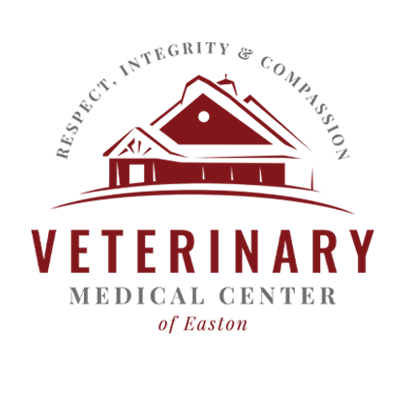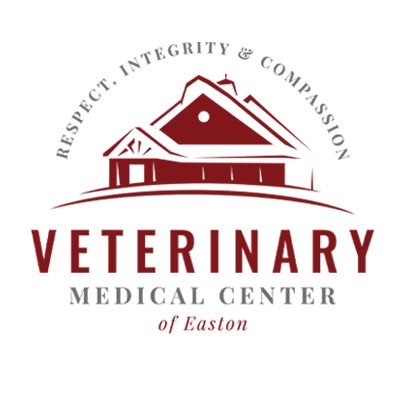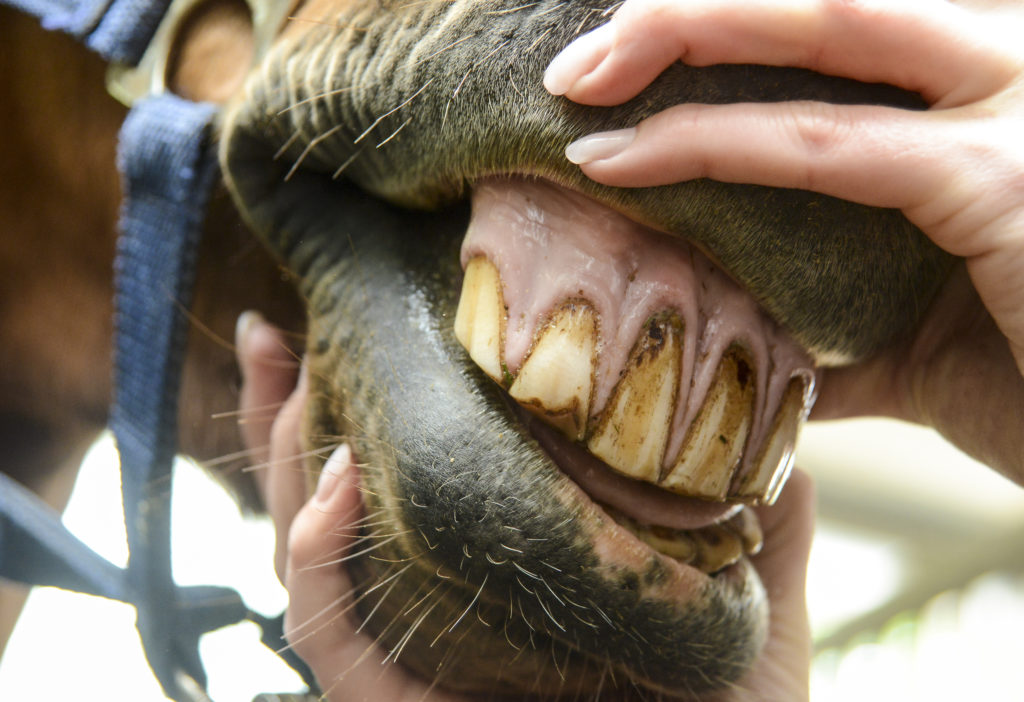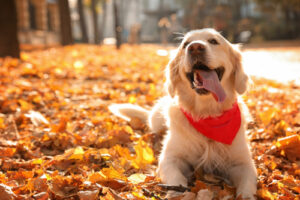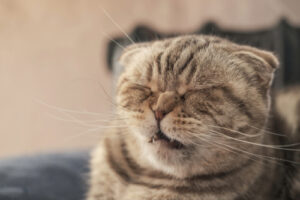They say “you should never look a gift horse in the mouth,” but you should definitely have your vet take a look. There is a lot of valuable information that you can gain about a horse from looking at its teeth and the inside of its mouth.
Why worry about dental care for my horse?
It is important to have your veterinarian be involved in your horse’s dental care from the time they are young through their adult life. Horse’s teeth are hypsodont meaning that they continuously erupt throughout their life. Horses only get one set of teeth, and these days many horses are living well into their 30s, so quality dental care is extremely important. As the teeth erupt and the horse chews its food, over time the teeth can develop sharp points, teeth can become loose or fall out and other teeth can over grow or erupt incorrectly, potentially causing some major issues. Many malocclusions, or misalignment of teeth, can start when the horse is very young even as early as about two and a half years old when the horse’s permanent teeth begin erupting. This is why it is so important to have your veterinarian involved in the oral care of your horse. Over the lifetime of the horse these malocclusions can cause major problems. If we catch them when the horse is young, we are better able to correct or manage the problem.
What does “comprehensive oral exam” mean?
We start by performing a thorough physical exam on your horse to evaluate overall health and determine if it is safe to give the horse a light sedative. Sedation is used to help relax the horse and its strong jaw muscles and allows us to place a speculum in the mouth. Warm water is used to rinse the mouth to remove left over feed and hay so that we can better visualize the oral cavity. We look for signs of inflammation, ulcers, foreign bodies and wounds. Each tooth is examined and palpated to determine if there are any malocclusions, missing or loose/fractured teeth or periodontal disease.
After evaluating the horse’s mouth, your veterinarian will explain their findings and make a plan with you based on these findings and recommend future exams and the need for floating. In most cases a routine float will be performed, in other cases more advanced work will be necessary. It is even possible that no action at all needs to be taken. It is important to note that not all conditions can be corrected in one visit.
Why should I have my vet perform dental exams and floating and not an equine dentist?
Many equine dentists do have a degree of training; however, they are not licensed veterinarians so they are unfortunately not held to the same standard of care or of liability. If there are any concerns from the owner about what was done, the quality of the work or the outcome, there may be little recourse as there are no governing bodies for lay dentists at this time. Legally, only veterinarians can administer sedation, diagnose, create a treatment plan and oversee it. It is important for horse owners to be educated on this issue to make the best decisions on who you choose to have work with you and your horse in all aspects of their health care.
Dr. Caitlin Hutcheson, BVMS
For more detailed information please visit the link following.
• https://aaep.org/horsehealth/equine-dental-care-what-every-horse-owner-should-know
